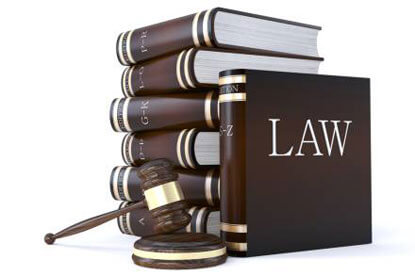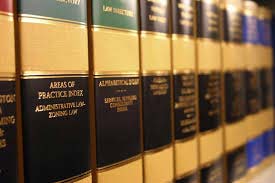
If you are an unhappy lawyer who feels trapped by the “twin bonds of money and status” in the legal profession, you can take comfort in knowing you are not alone.
Studies show that 56% of lawyers are frustrated with their careers, and law-firm associates consistently rank at the top of “unhappy professional” lists.
Other studies show that lawyers struggle with substance abuse, anxiety, and depression more often than other professions. ALM’s latest Mental Health and Substance Abuse Survey shows that 64% of the more than 3,800 respondents feel they have anxiety, 31.2% are depressed, 10.1% feel they have an alcohol problem, and 2.8% have a drug problem.
The plight of burnt-out lawyers, especially those at biglaw firms, has even spawned an industry of experts dedicated to helping attorneys leave the practice of law.
“Law is the only career I know that has a sub-profession dedicated to helping people get out of it,” Liz Brown, author of the help manual, Life After Law: Finding Work You Love with the J.D You Have, told The Atlantic.
The growing unhappiness of lawyers stems from root causes that can be traced back to either law school or the reason why people opted for a J.D.
The Pattern Starts in Law School
Law school, in many cases, is the default choice for people who do not know what else to do, followed by the assumption that a J.D. is a golden ticket to a lucrative career. Therefore, law school acts as a socially acceptable procrastination method to push back a more definitive career path.
“I like to joke that I’m a Jewish kid who didn’t like blood so I couldn’t go to medical school, so I went to law school,” says Casey Berman, a former attorney and founder of the blog Leave Law Behind, who admits, “I spent more time thinking about my iPhone purchase years later than a degree that was expensive and took three years out of my twenties.”
Once in law school, however, joining a law firm seems like the only choice. The appeal of a glossy biglaw firm, enhanced by the reality of student loans, traps law graduates in a vicious circle that ultimately leads to unhappiness and frustration.
“Big law was really the only path I considered. With the level of debt I incurred by going to law school, taking the highest paying job felt like the only real, responsible choice,” says an Ivy League grad.
While law schools pave the path to biglaw firms so well that students most often navigate it on auto-pilot, much of the curriculum is based on theoretical analysis and training students to “think like a lawyer.” As a result, J.D.s go out in the world partially unprepared for the adversarial nature of practicing law. Law schools have yet to become better aligned with the marketplace.
“People graduate from law school not knowing what lawyers actually do,” says Marc Luber, founder of J.D. Careers Out There, a website for lawyers in career transition.
As it turns out, exceptions to the rule do exist—lawyers who have decided to think outside of the ‘big law box’ tend to have reached a more balanced and fulfilling career.
“While colleges of law do not actually teach one how to practice law, I worked 20 hours a week for a small firm while attending law school. Originally I was only to be a research assistant but began to draft motions, prep the attorneys on motion hearings, drafted pretrial documents, and the attorneys would have me present when the judges decided the motions, etc.” says a former trial attorney. “That was a tremendous experience as I was able to learn how to practice law as well as the procedures not written anywhere.”
Pressure to Be Perfect
Attorneys tend to be driven perfectionists who seem to chase “the best” like addicts, which is why they entered such a challenging profession. They want the best law school, the best grades, the most prestigious law firm, the highest salary. This common trait among attorneys is also a contributing factor to the brutal culture in the legal field that highly condemns vulnerability and encourages infallibility, which leads to stressed and disconnected attorneys.
One of the major problems you will have as an attorney at a large law firm is that you will not be allowed to be human, or to show much weakness at all, says Harrison Barnes, a well-known legal recruiter and founder of BCG Attorney Search.
“One attorney slept in after working most of the night and was 20 minutes late for a meeting with a client,” says Barnes as he recalls some rather peculiar reasons why attorneys he met were looking for a job. “Another attorney discovered that they are disliked by a colleague at their 1,500+ attorney firm. In another case, the problem was that someone in the attorney’s firm found out too many personal details about the attorney’s life.”
Basically, as these examples illustrate, attorneys in most cases feel ashamed of showing weakness at the workplace and are dealing with a great amount of pressure to suppress all kinds of emotions, which often leads to depression, anxiety, and alcohol and drug abuse.
“Most very good attorneys never seem to completely let their guards down—even with their close friends. They are good at not admitting they are wrong. They are afraid of doing anything that would make them look weak. Attorney depression often occurs because they believe they need to be the people they think they should be and not necessarily the people they are.” says Barnes.
These superhuman expectations in the legal world are visible in the attorney’s day-to-day reality—ad nauseam work, an always-on mentality, a grueling schedule of billable hours, fiduciary duties, and unrealistic deadlines.
Lawyers Are Dealing With Conflict Every Day
An inability to express feelings is especially destructive, considering that lawyers deal with other prople’s problems and confront unpleasant issues and people on a daily basis.
Clients rarely meet with a lawyer bearing happy news—they are facing divorce, they have a contract dispute, they’re struggling with debt, etc. Point being, attorneys are solving other people’s problems on a daily basis by using “the law” as a tool, and, in most cases, thanklessly.
In a word, lawyers are dealing with conflict every day.
“See, nobody but a psychopath is ever happy during a conflict. The client is not happy because she/he is paying someone to fix a problem. The client doesn’t want the problem and really doesn’t want to pay hard-earned funds to fix what s/he feels ‘shouldn’t’ be a problem in the first place. It’s the other party’s fault.” says one former staff attorney. “Opposing counsel is never happy, which is the defining nature of the job of opposition (‘to oppose’). S/he acts in opposition to even good ideas which might help to resolve the issue. S/he does so in order to earn fees and represent the other side with vigor. The win/lose paradigm of law practice and litigation based on finding fault fails to create win-win solutions to a conflict which cooperation, diplomacy, and mediation could solve.”
Aside from the difficult issues that bring the clients into an attorney’s office in the first place, because our legal system is adversarial, lawyers must also handle unpleasant people all the time.
Insolence runs rampant in the legal profession, and the constant exposure to negative, hyper-aggressive behaviors can take a toll on attorneys.
“The reason why I have not hard-practiced, is that I watched law change — in real-time — from a profession, where the raison d’etre was service to and doing good for the client/world, to a business, where the raison d’etre is plain,” another former attorney says.
Pessimists Make Good Lawyers
There is a psychological study based on attorneys’ pathological unhappiness that underlines pessimism as an innate trait in lawyers. According to the research titled “Countering Lawyer Unhappiness: Pessimism, Decision Latitude and the Zero-Sum Dilemma”, pessimists tend to be unsuccessful in many professions, except for lawyers.
Pessimism is considered a virtue for lawyers, as it enables a good attorney to predict snares and calamities that might conceivably occur in any transaction.
Pessimism encompasses what we call—in less pejorative terms—prudence. A prudent perspective, which requires caution, skepticism, and “reality-appreciation”, may be an asset for law or other skill-based professions, the study claims.
The ability to anticipate the worst-case scenario and the whole range of problems and potential betrayals is highly adaptive for the practicing lawyer, who can help his clients defend against these eventualities.
Unfortunately, what makes for a good lawyer also makes for an unhappy human being. Lawyers cannot swiftly turn off pessimism when they leave the office. Lawyers can see how bad things might be for their clients and are also burdened with the tendency to see how bad things might be for themselves.
“In my opinion, the majority of the unhappiness that attorneys find in their careers is due to the fact that the profession so sternly comes down on vulnerability, which also severs attorneys’ connections with themselves and others. Without a connection to others we are completely lost because such a connection is the essential element of being alive,” says Barnes.
















































